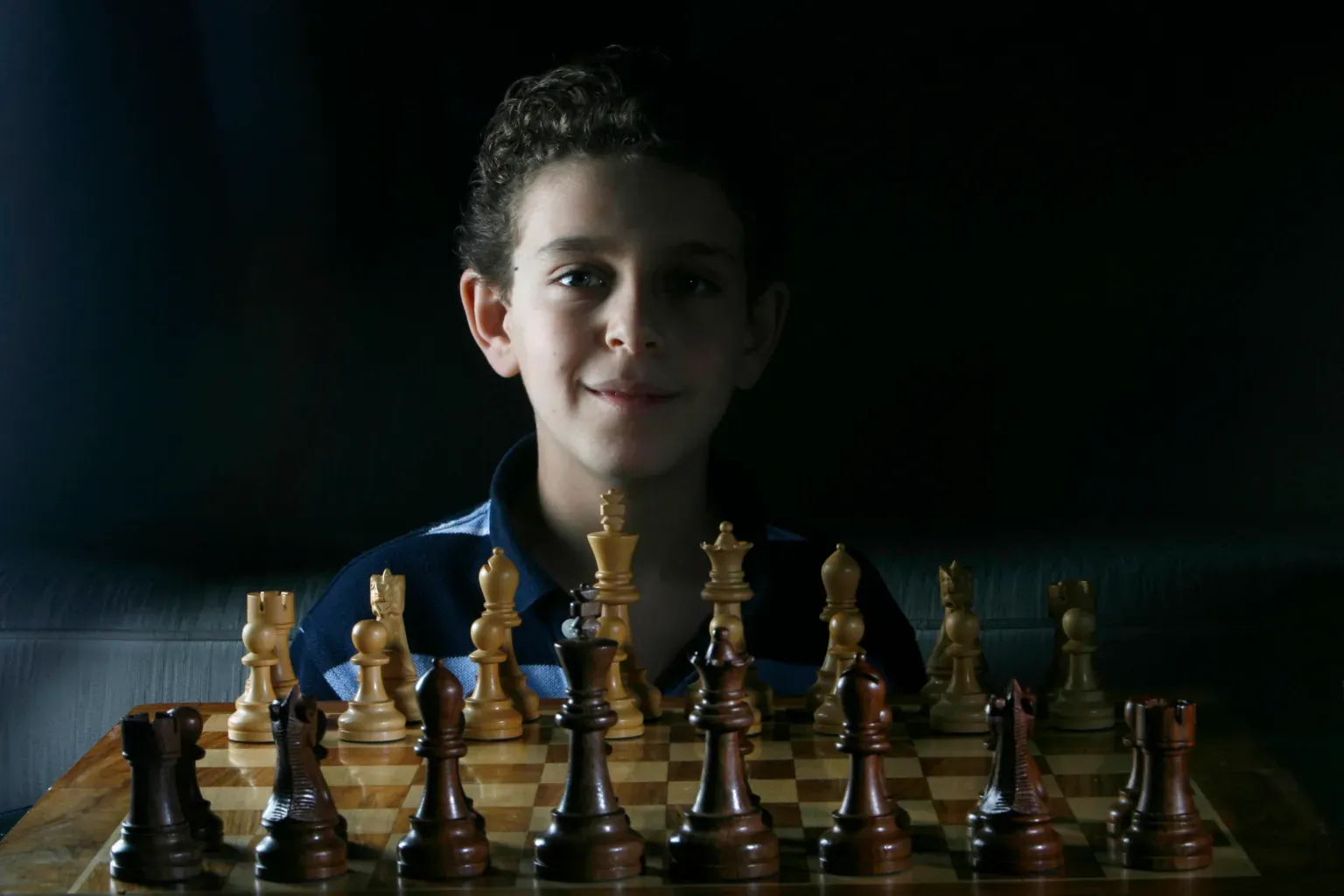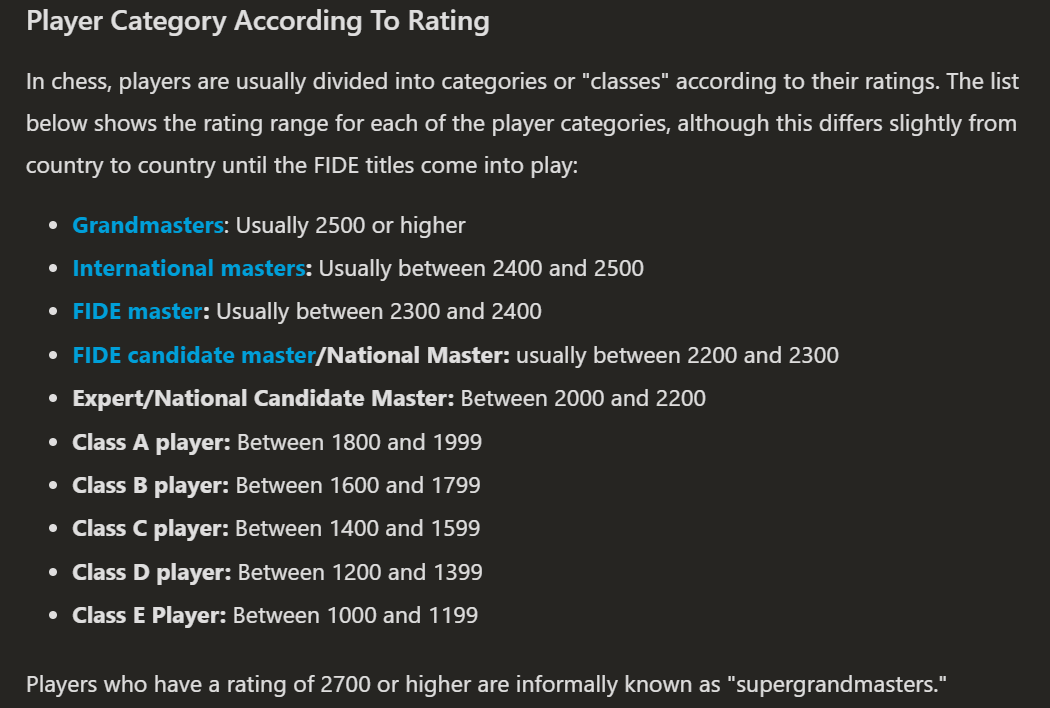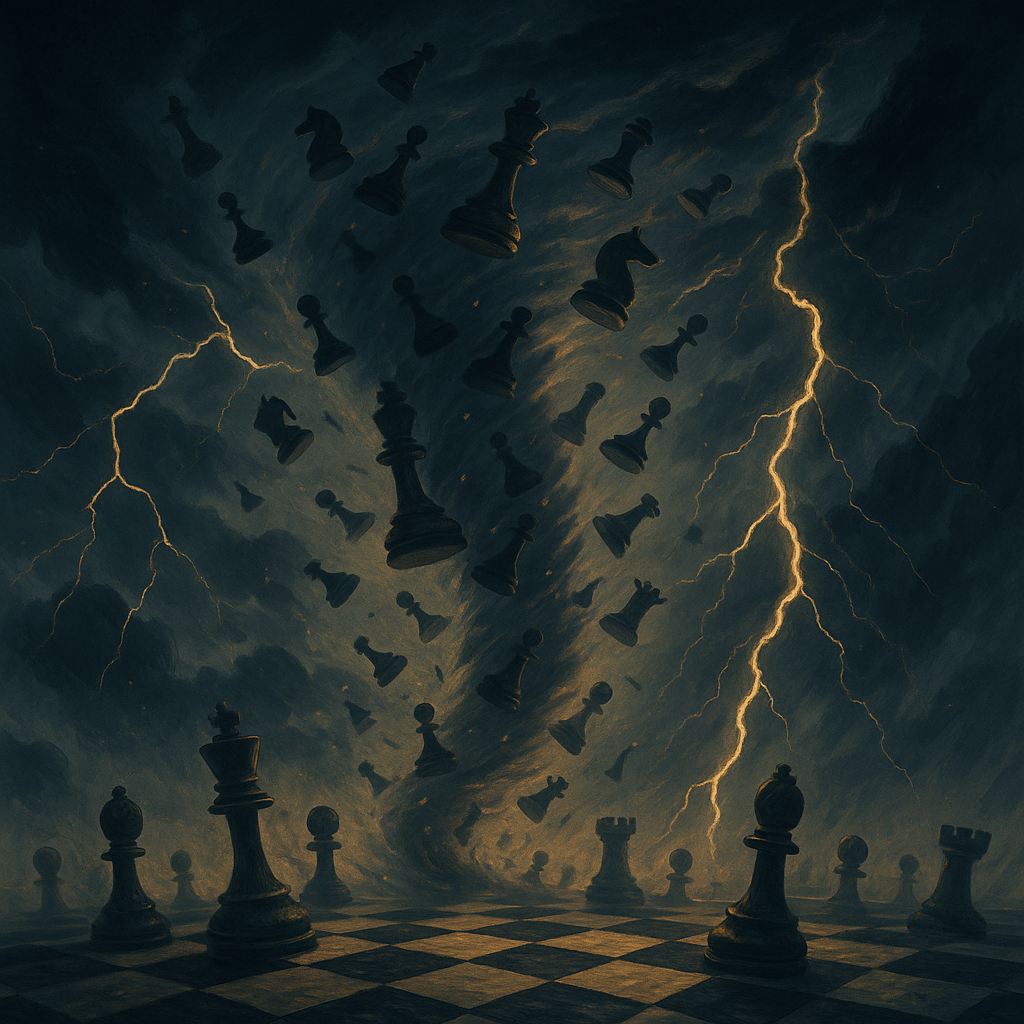The King’s Gambit Declined: Daniel Naroditsky and the Price of Perfection
A reflection on the quiet genius of a grandmaster undone by pressure, isolation, and the unforgiving pursuit of perfection.

I have affectionately referred to my partner, Erin, as The Grim Reaper in a previous article. I don't refer that to her as that all the time. That would be weird.
I only call her that when I see THE look. The look I refer to is when we are sitting in silence in the living room, maybe watching a TV show together, or maybe in our own separate worlds despite being in the same room.
Sometimes I will look over at her and I will see her with her mouth agape, looking down at her phone, then looking up at me wide-eyed, looking back down to her phone, and then looking back at me. I can see the wheels turning her head. I can see her thinking, "Should I tell him?"
It's happened a lot in recent months. It happens whenever she finds out some celebrity died, especially a celebrity she knows might affect me. As I get older, more and more celebrities from my youth have passed away. It's only natural and it is something I have come to accept.
Hearing about the passing of people like Robert Redford, Ozzy Osbourne, Hulk Hogan, and, most recently, Diane Keaton, would have hit me hard just a few years ago.
When I first heard (and each time it was Erin who told me first) about Michael Jackson, Whitney Houston, Prince, and Eddie Van Halen passing away, I was devastated for days.
Lately, however, I don't want to speak for Erin, but I feel she is almost disappointed when I shrug off some of her Grim Reaper announcements. I have become numb to them. I have become unfazed.
Last week, however, when I saw that look on her face and asked who was it this time, I was shook to the core. She looked at me and struggled with the name, "Daniel Ner-gritsky."
I almost leaped out of my seat. "Daniel Negreanu?" I exclaimed. "Are you serious?"
I thought she was referring to a poker player who is about my age who is pretty much the Ambassador of Poker for my generation of poker players.
"No, not him." She turned her phone around to show me a picture. "This guy."

"Holy shit! No f****** way!"
It was a picture of Daniel Naroditsky. I know the name will not be familiar to a large majority of you, but he is very familiar to me.
I first became familiar with Naroditsky during COVID, during the extended period of time where everyone was quarantined at home from 2021 through 2023. While many passed the time binge watching Netflix, I re-acquainted myself with a childhood pastime of mine – playing chess.
My fourth ever article on this site, in 2023, was on Bobby Fischer, as a matter of fact.
Looking back, it may have been Netflix' Queen's Gambit that got me back into chess.
I stumbled across the website chess.com and became hooked. I discovered, just like online poker which has always been an obsession (addiction?) of mine, that you could play against people all across the world.
Having always had social and performance anxiety, I was hesitant to click ‘Play Online’ and stuck to ‘Play the Computer’ for a month or two. Then, one night, I felt ballsy and thought, ‘What the heck—let’s try this!’”
As I waited for the computer to find me an opponent, I noticed a number prominently displayed next to my name. I think it may have been "400" or "500." When the computer settled on an opponent for me, I noticed he had a number – very close to mine – also next to his name.
As I easily defeated my first five or six opponents (they were really, really bad), I noticed my number going up higher and higher. I also noticed the number next to my new opponent's screennames going higher and higher each time.
Gradually, the closer I got to 800, the games weren't as easy. The players were no longer making dumb mistakes.
After doing some research, I realized these numbers were how chess players were rated, or graded. Every time you win, the number goes up. Every time you lose, it goes down. The numbers had a name – Elo.
When you get really high up in Elo, you earn titles. Here is how chess.com breaks it down on their website:

I also looked around at some of the tabs on chess.com and realized there was an "analysis" tab that you could click on and a computer would review every move you made in any of your previous games. It also told you if you made the right move or what the right move should have been.
Now I was really hooked. There was a way to study and improve at the game, and it kept score! Those are the key components that fuel my addictions. Give me a score and a leaderboard, baby!
Online Streamers
I went out, just like I had with poker, and bought instructional books at $20-30 a pop. I went on YouTube and discovered a whole bunch of chess videos with certain players that would stream themselves playing every day while offering commentary.
I would watch these guys play for hours at a time every day. God bless, Erin!
There were three or four streamers that I gravitated to. They all had different styles.
GothamChess was one of my early favorites just because he had a cool name and looked like a magician. I wouldn't learn until months later what his real name was – Levy Rozman. (I have a clip of him at the end of this article)
There was Anna Cramling. She is a cute Swedish blond with a big smile and a warm, "aw-shucks" disposition. She liked going into bars or chess parks and beating unsuspecting, arrogant opponents who would underestimate her because she was a woman.
Anna Cramling talks about Daniel Naroditsky's death.
But the one I enjoyed watching the most was a humble, intelligent, soft spoken, but very articulate young man with curly hair and a very calm disposition. His name was Daniel Naroditsky.
I'd watch "Danya," which is how his friends referred to him, play chess almost every day. When he wasn't streaming, I'd go back and look at his older, pre-COVID videos.
There was just something so soothing about his voice. He never swore. He never belittled his opponents. He wasn't loud. He never got angry. He patiently explained moves to relative novices like me – moves I'm sure he had done hundreds of thousands of times in his life, and, I'm sure, his sleep. But he would sit there with his headphones on and explain the moves to the viewer like we were one of his students.
I stopped playing chess about two years ago when I realized I was spending too much time on something that wasn't making me money, and had no chance of ever making money. Social media (and COVID and Queen's Gambit) was a blessing for chess players as that became their best chance of making any income off of playing chess, other than playing tournaments, tutoring, or writing books – which didn't earn them much.
I saw a lot of myself in Daniel – shy, smart, socially awkward, soft-spoken, humble. That's why I was, and still am – over a week later– shattered to hear of his passing.
I found the official statement from the Charlotte Chess Center – a facility with three locations in North Carolina and one in South Carolina, established in 2014, "devoted to chess education." Naroditsky served as the Grandmaster-in-Residence and coach there.
The Naroditsky family shares the sad news of Daniel’s unexpected passing. Daniel was a talented chess player, educator, and beloved member of the chess community. We ask for privacy as the family grieves. pic.twitter.com/otNdUxDKtL
— Charlotte Chess Center (@CLTchesscenter) October 20, 2025
"Unexpected?" Other reports I began reading said "he was found dead" in his home in Charlotte, North Carolina. He was found unconscious on his couch by a fellow chess player and friend. Naroditsky was only 29 years old.
To me, those words only mean one thing.
But why would he do that?
Brief Bio
Naroditsky was born in San Francisco, California. His parents were both from the former Soviet Union. Danya was introduced to chess at the age of 6 and only eleven years later, at the age of 17, he became a grandmaster. He graduated from Stanford and moved to North Carolina to work with his friend, Peter Giannatos, who had founded the Charlotte Chess Center.
Naroditsky was, literally, a genius. Just like Bobby Fischer.
Life of an Online Gamer
But playing chess can be a lonely endeavor. Playing online chess, like any form of online gaming, is even more isolating. It takes a toll – playing six to eight hours per day (often more), not going outside, not interacting with live people, staring at a monitor, not getting much (if any) sleep.
As if that weren't enough, I started unearthing the troubling truth about why Naroditsky decided he didn't want to go on any more.
Online Bullying
So I stopped playing online chess sometime in 2023. I had gotten my rating up to 1200, but I had plateaued around that mark. Plus I had discovered how easy it was to cheat at online chess and realized how prevalent it had become.
Remember that "analyze" tab I mentioned earlier? Well, there are other apps outside of chess.com that you can use to analyze your play as you play. So a chess player could be playing a match on their computer and plug in the moves, as they happen, into the app on their phone and the app would tell them what their best move is. `
Growing up, Naroditsky idolized Russian chess player, Vladimir Kramnik. Kramnik was the world champion of chess from 2000 to 2006.
Kramnik started a crusade in recent years against online cheating, especially on chess.com. Not only could someone like me play on chess.com, but the best players in the world, like Magnus Carlsen, also played on there.
Kramnik accused several of those top players of cheating. He didn't have a single shred of evidence, other than they kept winning all the time and they played faster than him.
Maybe he was tired of seeing the younger generation blowing past him in Elo ratings. Maybe he didn't want to come to terms with his diminishing skills or the idea of playing computerized chess. Maybe he didn't like – and couldn't adapt to – the newer faster-paced, "bullet" formats of chess, where players had far less time to make moves.
Kramnik went on a year long crusade against one of the top players in the world, Hikaru Nakamura, who is also one of the most popular streamers out there. After Naroditsky's death, Nakamura didn't mince words when he said during his stream,
"I said it before and I'll say it again, Kramnik can go f* himself. He can go f*** humself and go rot in hell."
Hikaru Nakamura
Kramnik was banned from chess.com in 2023 because of his relentless, baseless accusations.
Unbeknownst to me, this past year, Kramnik set his sights on the person who once idolized him as a child, Daniel Naroditsky. Naroditsky's mother, Elena, has come out and said, "There was nothing more important to Daniel than his dignity and his name as a chess player. The ex-world champion was trying to say he's a cheater."

This weighed heavily on Naroditsky. Naroditsky's mother went on to say, "He played more and did more and more because he was trying to prove that he's not what he was accused of."
In essence, Naroditsky was putting more and more pressure to win every time to maintain and increase his Elo rating to prove he wasn't cheating. Despite almost always streaming while playing, he was still dogged by Kramnik's accusations.
Naroditsky's last online opponent was India's Nihal Sarin. Sarin said, "The relentless, baseless accusations and public interrogations he faced in recent months caused him immense pressure and pain."
Danya's Last Stream
Naroditsky defended himself in his last live stream (an edited YouTube user's version is above; the original video has been taken down) only a couple of days before his death.
I debated long and hard before presenting this and I don't know how long the above video will continue to be on YouTube. A lot of Danya's most recent streams on his channel have been taken down.
I found it incredibly troubling to watch, especially starting around the 19:00 mark when he loses, seemingly, much more than just a match.
However, as troubling as the video may be witnessing someone have an internal life-or-death struggle with themselves, I believe it serves a purpose. If nothing else, it could be part of Danya's legacy and maybe the most important lesson he taught us as a society, and as individuals dealing with mental illness.
Daniel says some real powerful things in the video. He begins by saying he has been bothered recently by something he read on social media about him.
"I really shouldn't browse Reddit because I irrationally let certain comments get to me. and I know better."
"Should it have pissed me off? No. But I am only human."
"It's more perplexing than anything that people can't wrap their heads around what is on the line for me."
"At some point, not responding was not an option. It would lead to the destruction of my livelihood."
"This is an imminent and incredibly sticky threat to my career."
"That literally is what a legacy is. That is all I have. I could not live with, and maybe that is a me problem, if i knew that some of the most influential movers and shakers of the chess world would carry the notion that I am a completely morally bankrupt individual that would represent the complete failure of, literally, everything that I, my reason for waking up in the morning."
In a cryptic moment, he read a Reddit post from a random user (6:45 mark of the video), not Kramnik,
"' It's definitely a lesson for him to learn from, given that he is a streamer and a YouTuber and this will not be the last time he faces criticism or trolling.'" Naroditsky then stopped and said, defiantly, "Oh, it actually will be."
Naroditsky then dropped an F-bomb ("there is a reason people know I'm not to be f**** with, on this front") which is the first time I ever heard him swear. That was the first in a series of uncharacteristic behaviors which, again, I found educational from a psychiatric perspective.
Some, including Kramnik, viewed his subsequent behaviors in the video as evidence of possible drug use.

At the 19:01 mark, he uses a weird voice and says, "You see what I am saying? You feel me, girl?" What?
At the 19:31, he adopts a weird Russian accent and points to the screen and says, "This is the very first and very last time in your life," for no reason.
He, immediately, pretends he is a 70-year-old in a nursing home who is appreciative they fixed the internet in his nursing home (19:44 mark).
"They finally extended my computer access. Like I know I am, like, 70-plus, I'm happy that they're managing things for me pretty well, but I don't like being treated like a child. If I want to use the computer, ya know, I'll eat my apple sauce. Enough with the rules and restrictions."
At the 21:40 mark, he briefly adopts a Southern accent, "Over here in the South, we treat people with respect. Jesus!"
He then responded to someone's chat criticizing his play, being self-deprecating, "It's not like he's been playing this stupid board game for twenty years."
At the 22:30 mark, he makes a bad move and loses a match, saying, "No!!! I am so f****** bad at this game!"
He, then, appears to fall asleep for a few seconds before staring at the chat on his screen and then pulling his shirt over his face for over a minute.
Keep in mind the video I posted is someone else who edited Naroditsky's last stream, so it isn't all sequential. But it is obvious, he is fighting himself.
Was he on drugs?
He is seen sipping, what I presume, to be coffee. Again, I assume he is trying to stay awake. Online gamers are known to stay up for 24 hours or more, straight. It is almost a sense of pride with some of them.
I think Danya is just badly sleep deprived in the video. We've all been there. He was feeling the weight of immense pressure to keep his rating up. He was mentally beat down by all the criticism which he viewed as an imminent threat to his livelihood – "his reason for getting out of bed every morning." Chess was his entire life, literally.
When you get to as high a level as Danya – his "blitz," or speed chess, rating on Chess.com exceeded 3000 at times – every he lost to a lower-rated opponent, his Elo would could drop six or seven points. If he beat a lower-rated opponent, he'd only gain a point or two.
Danya was one of the top five "blitz" players in the world, so he was almost always playing a lower rated player (but one who was still one of the top .000001% of players in the world).
Another cryptic moment in his final stream comes at the 26:55 mark of the above video. He suddenly snaps out of a slumber, smacks the mouse against his head a few rapid times, and mutters, “How about this, guys? Next loss…”
He never finishes the sentence. You can almost picture the scenario repeating itself, offline, as that is how his final moments may have played out. He was, literally, to the point where he was betting his life on winning every chess match.
Moments after he fails to complete his sentence, Danya repeats, almost frantically, “I’m just getting in my own head. I’m getting in my… own… head. Completely getting into my own head.”
At 34:20, a doorbell rings. Naroditsky leans forward, presumably glancing at his doorbell camera, and says in a very wide-eyed, paranoid manner, “Who is that?”
He sighs, then straightens in his chair and, with an oddly formal tone, declares, “I don’t care who it is, but in the United States of America it is illegal to be on someone’s property.”
Two of his friends can be heard storming into his room. They had been watching Daniel's live stream from their homes, jumped in their cars when they became alarmed at Daniel's behavior, and raced to Naroditsky's place to get him to shut down the stream and try to get him to lay down and sleep.
You can hear the friends off-camera, pleading with him to end the stream and go to bed.
Friend: “Danya, you need to go to sleep.”
Naroditsky: “What’s going on? Please, just let me play a few more, and then I’ll end the stream.”
Friend: “Danya, come on.”
Naroditsky: “Just a few more games. I set a 2 a.m. curfew. What’s the problem? I don’t understand what the issue is. Let me finish a few games in peace, and then I’ll go to bed. This is not a negotiation, guys.”
Friend: “You can keep playing—but off screen.”
Naroditsky: “Can I end on the next loss?”
Friend: “No. I’m going to unplug it if you don’t stop. The stream part, not the playing part.”
Naroditsky: “But ever since the Kramnik stuff, if I start doing well, people assume the worst. ‘Why isn’t he on stream? Why’s he suddenly doing well?’ You know what I mean.”
Friend: “I know what you mean. But you don’t have anything to prove to those people.”
Lessons To Be Learned
This video and just the whole sad ending to this young genius' life just got me thinking about so many issues, as I hope it has you, as well. This world is a lesser place today for losing a young, bright mind like Naroditsky's. With his intellect, who knows what he would have accomplished if given another forty or fifty years on this earth.
But an adversary, sitting at a keyboard, felt the need to push Danya off the mental tightrope he was teetering on.
Here is what else I take away from this tragic saga (but wait, ladies and gentlemen, this story is far from over – you'll see):
- Social media – I don't know any other way to say it – is the devil's handiwork
- Online bullying is not just a youth issue, it is a "grown up" issue, too
- Online bullying needs to have repercussions and punishments
- Comments made by "trolls" is more a reflection on them than you
- We put too much pressure on ourselves to be perfect, and the best
- Being a child prodigy is not something to be celebrated
- Being on a computer all the time is not healthy
- Humans need actual human interactions
- Get outside
- Hobbies should not become careers, and if they do, get another hobby
- Be aware of warning signs of someone needing help, and get them help
And, most importantly:
- We are all loved by more people than we realize!
Daniel Naroditsky was a grandmaster — better than 99.99% of the world at the “game of kings.” Yet somehow, being a king wasn’t good enough for him.
He was worried about his legacy. He thought chess was all he would ever be known for.
He was wrong.
His lasting legacy, in my eyes, will be to teach us – me included – about the subtle, and not so subtle, stimuli that unknowingly infiltrate our senses and shape our mental health on a daily, even moment-by-moment basis, and how destructive the demon inside all of us can become if left untamed and allowed to devour our very being.
If you or someone you know is struggling or in crisis, help is available.
In the U.S., call or text 988 to reach the Suicide and Crisis Lifeline, available 24/7 for free and confidential support.
If you’re outside the U.S., you can find international hotlines here: [findahelpline.com], which lists local numbers by country.
GothamChess reacting to Naroditsky's death and the effect Kramnik had on his mental health.
🖤 Share This
If this story moved you, share it with others who might need to read it.
🔗 The King’s Gambit Declined: Daniel Naroditsky and the Price of Perfection
Threads: Share on Threads
Bluesky: Share on Bluesky
Twitter/X: Share on X
Facebook: Share on Facebook
LinkedIn: Share on LinkedIn
